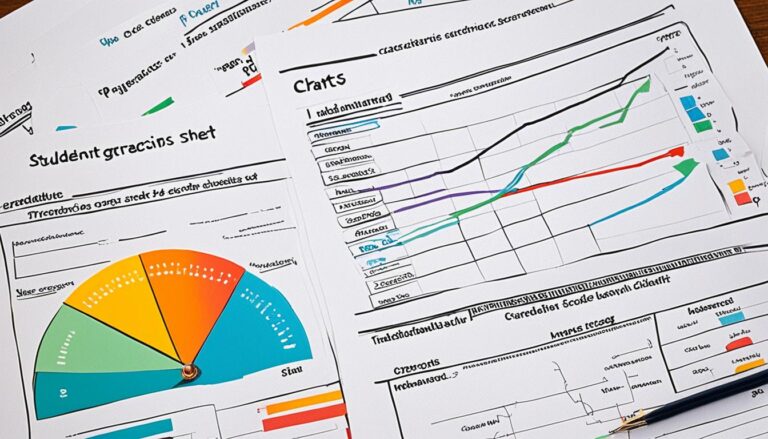Elevate Your Future: Set Strategic Leadership Goals

What sets exceptional leaders apart from the rest? Is it their innate abilities or their unwavering commitment to their vision? While some leaders seem to effortlessly navigate challenges and inspire their teams, others struggle to make an impact. The secret lies in one crucial aspect: setting strategic leadership goals.
Leadership goals serve as the compass that guides your journey towards success. They provide a clear direction, motivate you to push boundaries, and unlock your true potential. But how do you set these goals effectively? And how can they transform your leadership abilities?
Key Takeaways:
- Setting strategic leadership goals is the key to exceptional leadership.
- Leadership goals provide direction, motivation, and growth opportunities.
- Elevate your leadership skills by setting clear and ambitious goals.
- Learn how to set effective leadership goals and unlock your true potential.
- Discover the transformative impact of strategic leadership goal-planning.
The Importance of Leadership and Management Skills
Effective leadership and management skills are essential for driving success and achieving organizational goals. With these skills, you can create a strong sense of purpose, establish clear communication channels, and motivate your employees. By effectively leading and managing your team, you can build strong relationships with clients and partners, fostering trust and collaboration.
Leadership and management skills are particularly crucial in navigating challenges and uncertainties in the workplace. As a leader, you need to be adaptable and make difficult decisions when necessary. Those who can effectively adapt to changing circumstances are more likely to emerge stronger and more resilient.
Take a moment to reflect on the leaders who have inspired you. What qualities set them apart? Chances are, their effective leadership and management skills played a significant role in their success. Whether it’s their ability to delegate tasks, their strong communication skills, or their strategic thinking, these skills contribute to achieving the organization’s goals and driving the team forward.
To illustrate the impact of effective leadership and management skills, consider the following scenario:
| Scenario | Outcome |
|---|---|
| A leader with strong leadership and management skills | Creates a cohesive and motivated team that achieves the organizational goals. |
| A leader without effective leadership and management skills | Struggles to communicate effectively, resulting in confusion and lack of direction. This leads to missed opportunities and underperformance. |
Investing in developing your leadership and management skills can have a significant impact on your career and the success of your organization. It’s essential to continuously improve and refine these skills to stay ahead in a rapidly changing business landscape.

Tips for Developing Leadership and Management Skills
To develop strong leadership and management skills, it is important to focus on self-awareness and understanding your strengths, weaknesses, and communication style. By recognizing these aspects of yourself, you can effectively lead and guide your team towards success.
One of the key steps in developing leadership skills is setting clear goals and priorities. By defining objectives for yourself and your team, you create a sense of purpose and direction. These goals serve as a roadmap for achieving success and drive motivation among team members.
Communication is another vital aspect of leadership skill development. It is crucial to communicate clearly and frequently with your team. By maintaining open lines of communication, you foster trust and collaboration, creating a cohesive and productive work environment.
Accountability is equally important when it comes to leadership and management. By holding yourself and your team accountable for their actions and responsibilities, you build trust and credibility. This fosters a culture of commitment and ensures that everyone is working towards the same objectives.
Furthermore, it is essential to continuously develop your skills and knowledge. Stay updated on industry trends, attend workshops or seminars, and seek opportunities for professional development. By investing in your growth, you will become a more effective leader and stay ahead in a rapidly evolving business landscape.
Your leadership journey starts with self-awareness, clear goals, effective communication, accountability, and continuous learning. Develop these essential skills to unlock your full leadership potential and drive success in your organization.

Strategies for Effective Leadership Goal Setting
Setting goals is an essential part of effective leadership. To maximize your impact as a leader, it is important to set SMART goals – specific, measurable, achievable, relevant, and time-bound. SMART goals provide a clear roadmap for success and help maintain focus and motivation. Here are some strategies to help you set effective leadership goals:
1. Clearly Define Goals and Priorities
Start by clearly defining your goals and priorities. What do you want to achieve as a leader? What are the key areas that require improvement? By setting specific goals, you can direct your efforts towards areas that will have the greatest impact.
2. Foster a Culture of Trust and Accountability
Creating a culture of trust and accountability is essential for effective goal setting. When your team trusts and respects you, they will be more motivated to work towards the shared objectives. Encourage open communication, delegate responsibilities, and provide support and resources to help your team achieve their goals.
3. Communicate Goals Clearly and Frequently
Effective communication is key to goal setting. Clearly communicate the goals to your team, ensuring everyone understands their role and responsibilities. Frequent updates and reminders will help keep the goals at the forefront of everyone’s minds.
4. Provide Ongoing Feedback and Support
Regular feedback and support are vital for goal achievement. Provide constructive feedback and acknowledge progress towards the goals. Offer necessary resources, training, and guidance to help your team overcome challenges and achieve success.
5. Continuously Evaluate and Adapt Goals
Goal setting is an ongoing process. Regularly evaluate the progress towards the goals and assess if any adjustments need to be made. Adapt the goals as needed to align with changing circumstances and emerging opportunities.

| Benefits of Effective Leadership Goal Setting | Strategies for Achieving Goals |
|---|---|
|
|
The Impact of Leadership Strategy on Performance
A strong leadership strategy is vital for optimizing performance within a company. It involves setting clear goals and providing a sense of direction for employees to follow. By implementing an effective leadership strategy, you can enhance productivity, engagement, and loyalty among team members.
One crucial aspect of leadership strategy is active communication. This involves not only conveying information to your team but also actively listening to their ideas, suggestions, and concerns. By fostering open and honest communication, you can create a supportive environment that encourages collaboration and innovation.
An Example of Effective Leadership Strategy:
| Leadership Strategy | Outcome |
|---|---|
| Regular one-on-one meetings with team members | Enhanced employee engagement and performance |
| Transparent communication about organizational goals | Increased alignment and motivation among employees |
| Promotion of a learning and development culture | Improved employee skillset and productivity |
In addition, effective leadership strategy involves problem-solving skills. As a leader, you must tackle challenges head-on and find long-term solutions. By addressing issues promptly and effectively, you can prevent recurring problems and maintain a positive work environment.
Aligning employee actions with the company mission and values is another crucial aspect of leadership strategy. When employees understand and connect with the purpose and values of the organization, they are more likely to be motivated, engaged, and contribute to purpose-driven performance.

In summary, implementing a strong leadership strategy can significantly impact performance within an organization. By setting clear goals, practicing active communication, solving problems effectively, and aligning employee actions with the company mission, leaders can drive performance, foster a positive work environment, and achieve organizational excellence.
Conclusion
Developing and refining leadership goals is a continuous process. By focusing on self-awareness, goal setting, effective communication, trust building, and continuous learning, you can become a more effective leader.
Setting clear goals and aligning employee actions with the company mission can drive performance and contribute to organizational excellence. By continuously improving your leadership skills, you can achieve outstanding achievements and growth.
Remember, leadership excellence is not a destination but a journey. Embrace the mindset of continuous improvement and always strive to better yourself as a leader. As you master the art of setting strategic goals, inspiring your team, and navigating challenges, you will see your goals transform into tangible results.
So, keep challenging yourself, seek opportunities for growth, and never stop refining your leadership skills. By doing so, you will not only achieve your goals but also inspire and empower others to reach their full potential. With dedication and perseverance, you can become the exemplary leader who drives excellence and creates a lasting impact.






